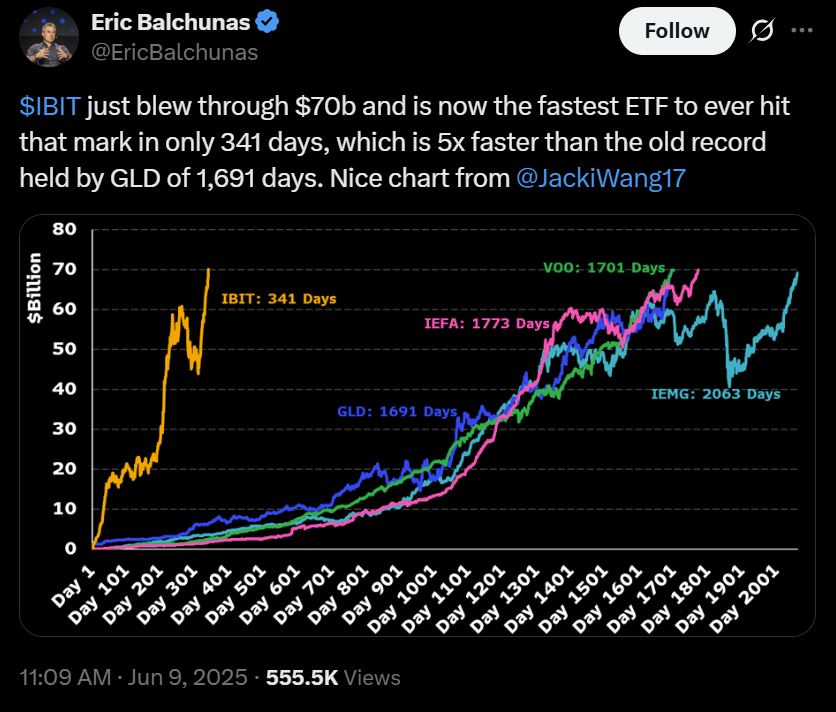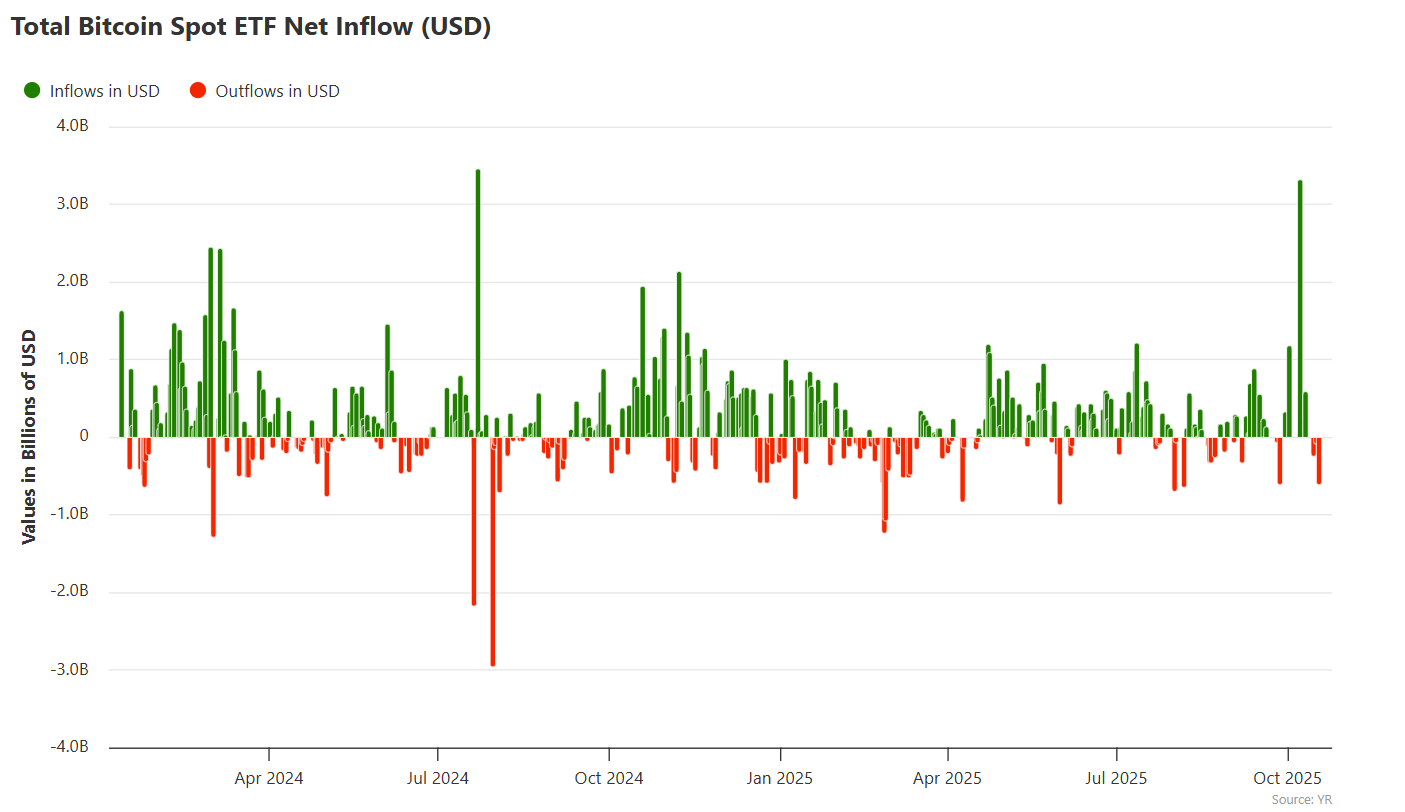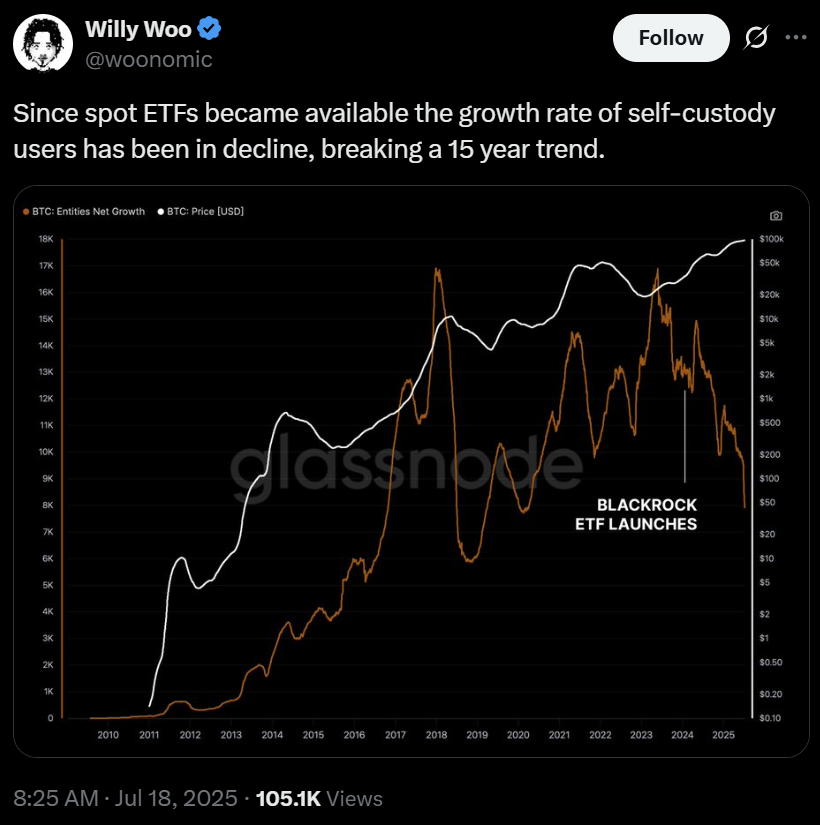
Large Bitcoin holders, often referred to as whales, are increasingly channeling their investments into exchange-traded funds (ETFs), particularly BlackRock’s IBIT. This shift reflects a significant move towards institutional participation in Bitcoin. In a recent interview with Bloomberg, Robbie Mitchnick, head of digital assets at BlackRock, indicated that the firm has facilitated over $3 billion in conversions into its iShares spot Bitcoin ETF.
Mitchnick stated, “Many whales are recognizing the convenience of carrying their assets in conjunction with their financial advisers or private banks.”
This trend enables them to maintain exposure to Bitcoin (BTC) while integrating their wealth within the traditional financial system, providing easier access to various investment and lending options. Mitchnick attributes this trend to a recent SEC ruling, which allows the direct exchange of ETF shares for Bitcoin instead of cash, facilitating more efficient and tax-friendly conversions for institutional investors.
 Source
Source: Eric Balchunas
Source
Source: Eric Balchunas
BlackRock’s IBIT is poised as the leader among established spot Bitcoin ETFs in the U.S., being the fastest to reach $70 billion in assets under management and currently exceeding $88 billion, as reported by Bitbo.
 Source
Source: Bitbo
Source
Source: Bitbo
Examining the Shift: ‘Not Your Keys, Not Your Coins?’
Mitchnick’s observations shed light on the institutional evolution of Bitcoin. Advocates for self-custody have long claimed that true security for funds can only be achieved through personal custody, represented by the saying, “not your keys, not your coins.” However, the advent of spot Bitcoin ETFs and corporate treasury participation indicates a potential cultural shift toward more conventional and potentially custodial means of ownership.
While these ETFs do not necessarily compete with direct holdings, as they cater to distinct investor categories, Willy Woo remarked in July that ETF interest might be diverting attention from self-custody. Recent on-chain data reveals a downturn in self-custodied Bitcoin after 15 years of growth, indicating a significant potential change in investor behavior.
 Source
Source: Willy Woo
Source
Source: Willy Woo
ETFs have effectively paved the way for a broader institutional engagement in Bitcoin, reshaping the dynamics that once saw whales influencing the markets through direct transactions.


